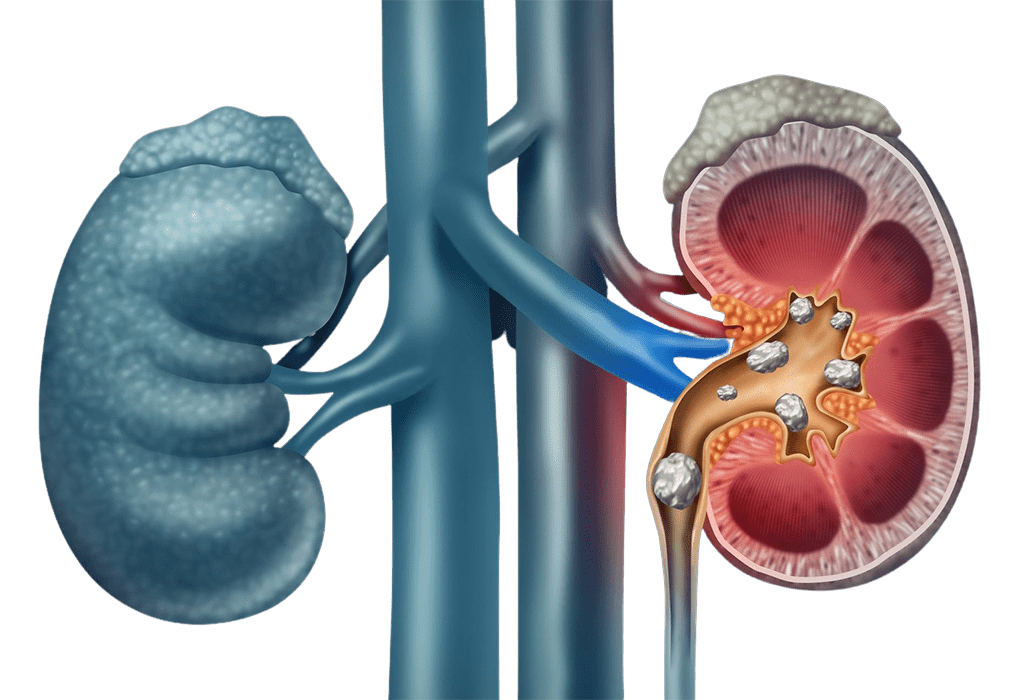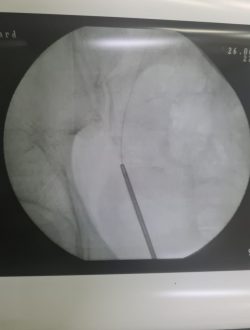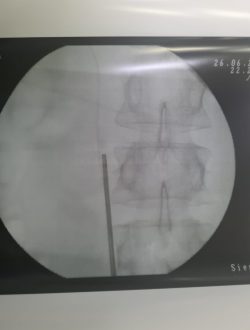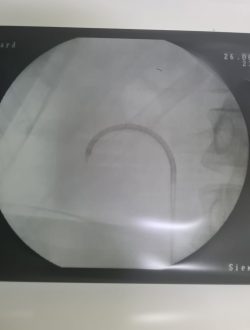Address
1st floor B Wing Dinath Terrace Lady Jamshedji Road Landmark : Opposite City Light Theatre, , Mahim, Mumbai, Maharashtra 400016
Work Hours
Mon to Sat: 3PM - 7PM
Overview | Treatment | Surgery | Precautions | After Surgery Care

The PSA test is a blood test used primarily to screen for prostate cancer.
The test measures the amount of prostate-specific antigen (PSA) in your blood. PSA is a protein produced by both cancerous and noncancerous tissue in the prostate, a small gland that sits below the bladder in males.
PSA is mostly found in semen, which also is produced in the prostate. Small amounts of PSA ordinarily circulate in the blood.
The PSA test can detect high levels of PSA that may indicate the presence of prostate cancer. However, many other conditions, such as an enlarged or inflamed prostate, also can increase PSA levels. Therefore, determining what a high PSA score means can be complicated.To decide whether to have a PSA test, discuss the issue with your doctor, considering your risk factors and weighing your personal preferences.

Prostate-specific antigen, or PSA, is a protein produced by the prostate gland. When there’s a problem with the prostate gland, it releases more PSA. High levels of PSA can be a sign of prostate cancer.
Researchers haven’t settled on a single normal PSA level. Previously, a level of 4.0 ng/mL or higher would lead to more testing, usually a prostate biopsy. During the biopsy, a healthcare provider removes a small sample of prostate tissue to check it for cancer.
However, healthcare providers now consider other issues together with the PSA level to decide whether to perform a biopsy. Your age, general health, family history and health history factor into the decision.
Prostate cancer is common, and it is a frequent cause of cancer death. Early detection may be an important tool in getting appropriate and timely treatment.
Prostate cancer can cause elevated levels of PSA. However, many noncancerous conditions also can increase the PSA level. The PSA test can detect high levels of PSA in the blood but doesn’t provide precise diagnostic information about the condition of the prostate. The PSA test is only one tool used to screen for early signs of prostate cancer. Another common screening test, usually done in addition to a PSA test, is a digital rectal exam.
In this test, your doctor inserts a lubricated, gloved finger into your rectum to reach the prostate. By feeling or pressing on the prostate, the doctor may be able to judge whether it has abnormal lumps or hard areas. Neither the PSA test nor the digital rectal exam provides enough information for your doctor to diagnose prostate cancer. Abnormal results in these tests may lead your doctor to recommend a prostate biopsy.
During a prostate biopsy, samples of prostate tissue are removed for laboratory examination. A diagnosis of cancer is based on the biopsy results.
Besides cancer, other conditions that can raise PSA levels include an enlarged prostate (also known as benign prostatic hyperplasia or BPH) and an inflamed or infected prostate (prostatitis). Also, PSA levels normally increase with age.
Certain drugs used to treat BPH or urinary conditions, and large doses of certain chemotherapy medications, may lower PSA levels. Obesity also can lower PSA levels.
The test doesn’t always provide an accurate result. An elevated PSA level doesn’t necessarily mean you have cancer. And it’s possible to have prostate cancer and also have a normal PSA level.
Some prostate cancers detected by PSA tests will never cause symptoms or lead to death. These symptom-free cancers are considered overdiagnoses — identification of cancer not likely to cause poor health or to present a risk of death.
A PSA test may help detect prostate cancer at an early stage. Cancer is easier to treat and is more likely to be cured if it’s diagnosed in its early stages. But to judge the benefit of the test, it’s important to know if early detection and early treatment will improve treatment outcomes and decrease the number of deaths from prostate cancer.
A key issue is the typical course of prostate cancer. Prostate cancer usually progresses slowly over many years. Therefore, it’s possible to have prostate cancer that never causes symptoms or becomes a medical problem during your lifetime.
Results of PSA tests are reported as nanograms of PSA per millilitre of blood (ng/mL). There’s no specific cutoff point between a normal and an abnormal PSA level. Your doctor might recommend a prostate biopsy based on the results of your PSA test.
Prostate cancer is common, and it is a frequent cause of cancer death. Early detection may be an important tool in getting appropriate and timely treatment.
Prostate cancer can cause elevated levels of PSA. However, many noncancerous conditions also can increase the PSA level. The PSA test can detect high levels of PSA in the blood but doesn’t provide precise diagnostic information about the condition of the prostate. The PSA test is only one tool used to screen for early signs of prostate cancer. Another common screening test, usually done in addition to a PSA test, is a digital rectal exam.
In this test, your doctor inserts a lubricated, gloved finger into your rectum to reach the prostate. By feeling or pressing on the prostate, the doctor may be able to judge whether it has abnormal lumps or hard areas. Neither the PSA test nor the digital rectal exam provides enough information for your doctor to diagnose prostate cancer. Abnormal results in these tests may lead your doctor to recommend a prostate biopsy.
During a prostate biopsy, samples of prostate tissue are removed for laboratory examination. A diagnosis of cancer is based on the biopsy results.
Your doctor might use other ways of interpreting PSA results before deciding whether to order a biopsy to test for cancerous tissue. These other methods are intended to improve the accuracy of the PSA test as a screening tool. Researchers continue to investigate variations of the PSA test to determine whether they provide a measurable benefit.
Variations of the PSA test include:
Men can have prostate cancer even if they have a normal PSA level. But cancer is more likely with an elevated PSA level. When PSA levels are:
Above 10: More than 50% chance of having prostate cancer.
Prostate cancer is the main cause of an elevated PSA level. But PSA levels increase with age and can reflect different prostate conditions. Other factors that may raise a person’s PSA level include:
Your healthcare provider will also consider whether your medications affect PSA levels. For example, 5-alpha reductase blockers treat enlarged prostates and will lower PSA levels.
An elevated PSA level does not cause symptoms, but it may be a sign of prostate problems like cancer. If you have any of these symptoms, your provider may want to do a PSA test:
If you have a high PSA level, you will need ongoing PSA tests and DREs so your Doctor can look for any changes. If the PSA level continues to increase or if your healthcare provider finds a lump during a DRE, you may need other tests, including:
A biopsy can tell you definitively if you have prostate cancer. The biopsy results also affect your treatment. For example, if the biopsy shows a lot of cancer cells, you might need more aggressive treatment.
If your provider finds an elevated PSA level, you’ll have repeat tests to check your prostate. Many men with elevated PSA levels — even those who have prostate cancer — live long, healthy lives. Prostate cancer may not need treatment, depending on how slowly the tumor is growing. Keep up with your regular appointments and tests so your care team can keep tabs on your health.
The PSA test was first developed to observe prostate changes in men who had a history of prostate cancer. Then it became more widely used in the general population as a way to detect and prevent prostate cancer before symptoms developed. But routine screening can find prostate cancers that grow slowly and do not need treatment. Talk to your healthcare provider to see if you should have regular PSA tests.
Regularly visit your healthcare provider for PSA tests and digital rectal exams. If you notice any change in how you feel or function, especially problems with urination, talk to your provider.












Dr. Utture is Outstanding Doctor who gave good treatment to my 75 years old mother who was suffering from Kidney problem and stomach ache since last 3 years.
Thanks to Dr. Utture
Regards
I have been treated by Dr Anand Utture for multiple kidney stones.He is very knowledgeable, gives right advice, easily approachable and explains in simple language the problem and course of treatment.Takes special care of his patients, truly dedicated doctor
Extremely grateful to Dr Anand Utture for his timely and accurate diagnosis for treating my mother (81 years) for her kidney stones.
very experienced urologist & has done correct diagnosis & treatment of My Grandmother(81 yrs) for kidney stones.











Inflammation or infection of the prostate, like prostatitis or a urinary tract infection. Hormone medications, like testosterone. Ejaculation, which can raise the PSA level for a short period of time (so it’s a good idea to avoid ejaculating for a few days before the test)
If you have any symptoms of prostate cancer, or if it runs in your family, ask your provider:
If you’ve ever had treatment for prostate cancer, you’ll have regular PSA screenings for the rest of your life. An increasing PSA level may mean the cancer has returned. Your care team may use other tests, including imaging scans and biopsies, to check for signs of cancer. If cancer returns, your team will discuss your treatment options with you.
Stress can affect your body in so many different ways. It’s also possible that periods of high stress can affect prostate health and PSA scores. Studies did find a link between abnormal PSA levels and high levels of stress. Learning some ways to relax and decompress can help reduce your stress levels. Find something that works well for you and make time for it.
Dr Anand Utture is a Senior Urologist who is internationally recognized for his surgical expertise and academic contribution to the field of Urology, in particular, the sub-specialised field of Flexible ureteroscopy with Laser which is the latest & most advanced technology with the highest success rate for the treatment of kidney stones in the world
Book AppointmentMake an appointment with your doctor if you have any signs and symptoms that worry you.
Seek immediate medical attention if you experience:

